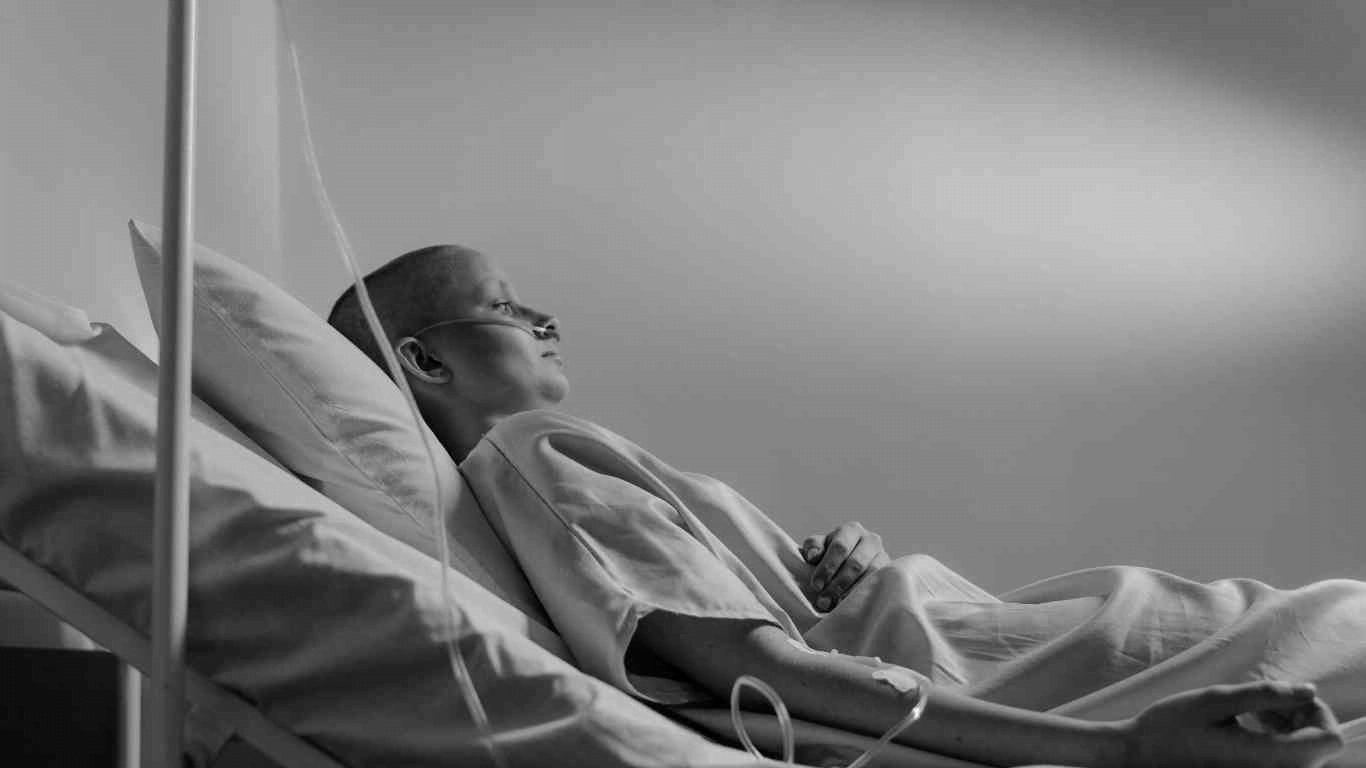Depression is a global epidemic, affecting millions of lives and taking a toll on overall well-being. Standard treatments such as psychotherapy, antidepressants, and lifestyle changes are often effective, but many people struggle with persistent depression that seems resistant to conventional approaches. As a naturopathic practitioner, I have will be talking about ibogaine for depression from my experience over the years and with results I have seen and obtained.
As researchers explore alternative therapies, one substance has been gaining attention for its potential to address depression at its root cause: Ibogaine. This natural compound, derived from the root bark of the African shrub Tabernanthe iboga, is showing promise in its ability to significantly alleviate depression and anxiety.
To learn more about the origins and use of ibogaine, check out Get Ibogaine’s article on Ibogaine Treatment.
Table of Contents
What is Ibogaine?
Ibogaine is a naturally occurring alkaloid with psychoactive properties, traditionally used in spiritual rituals by indigenous communities in West Africa. In the past few decades, it has gained attention in the West for its unique effects on mental health and addiction.
Unlike typical antidepressants, which often aim to manage symptoms, ibogaine works on a deeper level by addressing both the neurochemical imbalances and psychological traumas that underlie depression and anxiety. For more in-depth information about the science behind ibogaine, explore Get Ibogaine’s resources.
How Ibogaine Works in the Brain
Ibogaine is believed to interact with multiple neurotransmitter systems, particularly those involving serotonin and dopamine. These neurotransmitters are crucial for mood regulation, and any imbalance can result in depression and anxiety.
The compound also promotes a state of intense introspection, allowing individuals to process unresolved emotional traumas and deeply rooted psychological issues. By doing so, ibogaine not only improves mood but also facilitates long-term healing. This makes ibogaine for depression an increasingly popular area of study.
In essence, ibogaine acts as a “reset button” for the brain. It appears to “reboot” the brain’s neural pathways, allowing for the re-establishment of healthier patterns of thought and behavior. Research from institutions like Stanford University and the University of California is focusing on how this profound shift can be harnessed to treat depression and post-traumatic stress disorder (PTSD), often with remarkable results.
What is depression
Depression is a common but serious mood disorder that affects how a person feels, thinks, and handles daily activities. It is more than just feeling sad or going through a rough patch; depression requires a medical diagnosis and often, professional treatment.

Understanding the Causes of Depression
Causes of Depression
Depression is a multifaceted mental health condition with a range of contributing factors. These causes can be broadly categorized into genetic, biological, environmental, and psychological influences. Understanding these causes is crucial for identifying at-risk individuals and developing effective treatments.
Genetic Factors
Genetics plays a significant role in the likelihood of developing depression. Research indicates that depression can run in families, suggesting a hereditary component.
- Family History: Individuals with a family history of depression or other mental health disorders are at a higher risk of developing depression themselves. Twin studies, where one twin has depression, show a higher concordance rate for depression in identical twins compared to fraternal twins, reinforcing the genetic link.
Biological Factors
Biological aspects, including brain chemistry and hormonal changes, significantly impact depression.
- Neurotransmitter Imbalance: Depression is often linked to imbalances in neurotransmitters, which are chemicals in the brain that transmit signals between nerve cells. Key neurotransmitters involved in mood regulation include serotonin, norepinephrine, and dopamine. An imbalance or dysfunction in these chemicals can lead to mood disorders.
Environmental Factors
Environmental factors encompass the external circumstances and experiences that impact an individual’s mental health.
- Traumatic Events: Experiencing trauma, such as the death of a loved one, physical or emotional abuse, sexual assault, or severe accidents, can lead to depression. The stress and emotional pain from these events can have long-lasting effects on mental health.
- Chronic Stress: Prolonged exposure to stressful situations, such as financial difficulties, job loss, or a high-stress work environment, can increase the risk of depression. Chronic stress can alter brain function and lead to the development of depressive symptoms.
- Substance Abuse: Alcohol and drug abuse can lead to depression. Substance abuse can alter brain chemistry and function, creating a cycle where depression leads to increased substance use, which in turn exacerbates depressive symptoms.
Psychological Factors
Psychological factors involve an individual’s mindset, coping mechanisms, and personal history.
- Personality Traits: Certain personality traits, such as low self-esteem, pessimism, and high levels of self-criticism, are associated with a higher risk of depression. These traits can affect how individuals perceive and respond to life’s challenges.
- Cognitive Patterns: Negative thinking patterns, such as rumination (repetitively focusing on negative thoughts), catastrophic thinking (expecting the worst possible outcomes), and black-and-white thinking (viewing situations in extremes), can contribute to depression. Cognitive Behavioral Therapy (CBT) aims to address and modify these harmful thought patterns.
Relationship Between PTSD and Depression
Post-Traumatic Stress Disorder (PTSD) is a mental health condition that arises after an individual experiences or witnesses a traumatic event. This condition can affect anyone, regardless of age, gender, or background.
Traumatic brain injuries (TBI) are another condition that can occur alongside PTSD, especially in individuals who have experienced violent events, such as military personnel or victims of severe accidents. Traumatic brain injuries significantly impact a person’s daily life, making it very important to understand its symptoms, causes, and available treatments.
Depression is commonly co-existing with PTSD, meaning individuals with PTSD frequently experience depression symptoms. Understanding the overlap between these conditions is essential for effective treatment.
Symptoms of PTSD
Symptoms of PTSD manifests through a variety of symptoms, which can be broadly categorized into four types:
1. Intrusive Memories: Flashbacks of the traumatic event, Distressing dreams or nightmares, Severe emotional distress, or physical reactions to reminders of the trauma
2. Avoidance: Avoiding places, activities, or people that trigger memories of the traumatic event, Steering clear of talking or thinking about the trauma
3. Negative Changes in Thinking and Mood: Negative thoughts about oneself, others, or the world, Feelings of hopelessness or emotional numbness, Memory problems, particularly about the traumatic event, Difficulty maintaining close relationships
4. Changes in Physical and Emotional Reactions: Being easily startled or frightened, Always being on guard for danger, Self-destructive behavior, such as drinking too much or driving too fast, and Trouble sleeping and concentrating.
Ibogaine for Depression and Anxiety: What the Research Says
Although ibogaine has garnered a reputation primarily for its success in treating addiction, its potential to treat depression and anxiety has been increasingly recognized. Studies suggest that a single session of ibogaine treatment can have a lasting impact, often leading to sustained relief from depressive symptoms.
Patients frequently report a newfound sense of clarity, emotional balance, and an improved quality of life. Get Ibogaine offers comprehensive insights into the use of ibogaine for both depression and anxiety, as well as its broader applications.
Does Ibogaine Work for Depression?
According to anecdotal reports and emerging research, many people who undergo ibogaine treatment experience significant relief from their depression and anxiety, even after years of struggling with traditional therapies.
While more clinical trials are needed to fully understand its efficacy, the results thus far are promising. Importantly, unlike typical antidepressants that often need to be taken daily, ibogaine may provide long-term relief after just a few sessions.
Ibogaine Treatment for Depression: What to Expect
Ibogaine treatment for depression generally involves a single high-dose session, overseen by trained practitioners, typically in a controlled and supportive environment. The experience is often intense, lasting anywhere from 12 to 24 hours, during which the patient undergoes deep introspection. The treatment must be administered with medical supervision due to its powerful effects on the heart and body.
If you’re considering ibogaine therapy, Get Ibogaine has article outlines to help you know what you can expect and how to prepare for a transformative healing experience, such as Ibogaine Therapy For Drugs and Addiction.
Some ibogaine clinics provide comprehensive support, including pre-treatment preparation and post-treatment counseling, to maximize the benefits and minimize any risks. This holistic approach is essential for achieving optimal results, as the introspective journey induced by ibogaine is deeply therapeutic yet demanding.

Potential Side Effects and Risks of Ibogaine
While ibogaine can offer substantial benefits, it is not without risks. The substance has a strong impact on the cardiovascular system, making it unsuitable for individuals with heart problems or certain pre-existing medical conditions.
Side effects may include nausea, vomiting, ataxia (lack of muscle control), and, in rare cases, more severe reactions. It is crucial that any ibogaine treatment is carried out under medical supervision to ensure safety.
As a controlled substance in several countries, including the U.S., ibogaine is not approved by the Food and Drug Administration (FDA) for treating depression, which makes it challenging to access legally.
Some individuals opt to travel to countries where ibogaine treatment is legal and more widely available. To learn more about the regulations surrounding ibogaine treatment, you can refer to the Drug Policy Alliance.
Finding Affordable Ibogaine Treatment for Depression
For those considering ibogaine treatment, cost and accessibility are important factors. Due to its legal status and the need for comprehensive medical supervision, ibogaine treatment can be expensive. However, there are more affordable options available in countries where ibogaine use is legal and clinics offer safe, regulated treatment.
Related: Ibogaine Prices and Treatment Costs: Is it truly affordable?
How Ibogaine Compares to Traditional Depression Treatments
One of the major advantages of ibogaine treatment is its holistic approach. Traditional treatments like antidepressants focus primarily on correcting chemical imbalances, whereas ibogaine provides an opportunity to address both the physical and emotional roots of depression.
Additionally, ibogaine has been shown to provide rapid relief, with effects often being felt after just one treatment session, unlike standard treatments that may take weeks or even months to show results.
In contrast to SSRIs (Selective Serotonin Reuptake Inhibitors) and other antidepressants, ibogaine is also associated with fewer long-term side effects, making it an appealing option for those seeking alternative therapies.
The Future of Ibogaine for Depression and Anxiety
The future looks promising for ibogaine as a treatment for depression and anxiety. Continued research at reputable institutions like Stanford University and the University of California is uncovering new insights into how this powerful plant medicine can transform mental health care.
As public interest in alternative and naturopathic treatments grows, ibogaine is likely to play a significant role in developing more effective and integrative approaches to mental health.
While ibogaine is not a cure-all, its ability to catalyze profound change in individuals struggling with depression and anxiety makes it a revolutionary therapy worth considering.
Related: Could Ibogaine be the key to Ending Drug Addiction.
In Conclusion: Is Ibogaine Right for You?
Ibogaine has a positive effect on a patient suffering from depression. They accept the past and forgive the people who hurt them. Also, once a therapy session with Ibogaine has been completed, it does an amazing job at helping one reset their life and move forward in a new direction.
However, it’s important to note that Ibogaine should not be taken at the same time as SSRI medications. Furthermore, if you are on any medications for depression, Ibogaine can be dangerous since it may react negatively with other drugs and lead to heart attacks.
When taking Ibogaine to help you with depression, it’s important to talk to your healthcare provider for more information because it has serious side effects.
Take action today
Ibogaine is an emerging alternative treatment that is showing promising results for individuals dealing with depression and anxiety. By offering a holistic approach that addresses both the neurological and emotional aspects of mental health, ibogaine represents a new frontier in the treatment of depression.
If you’re searching for a path to healing that goes beyond managing symptoms and aims to foster deep-rooted change, Get Ibogaine could be the resource to guide you on your journey to well-being.


